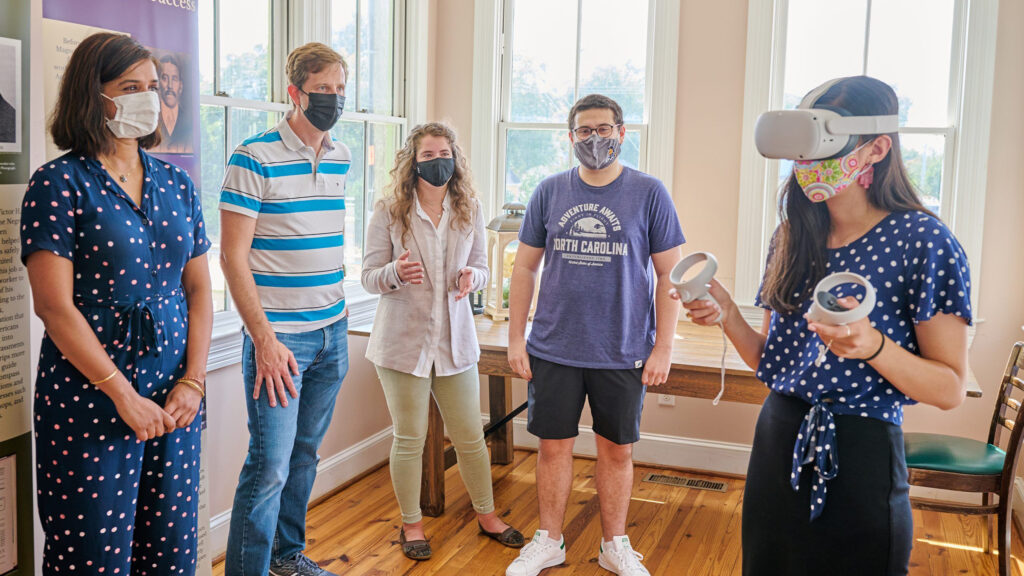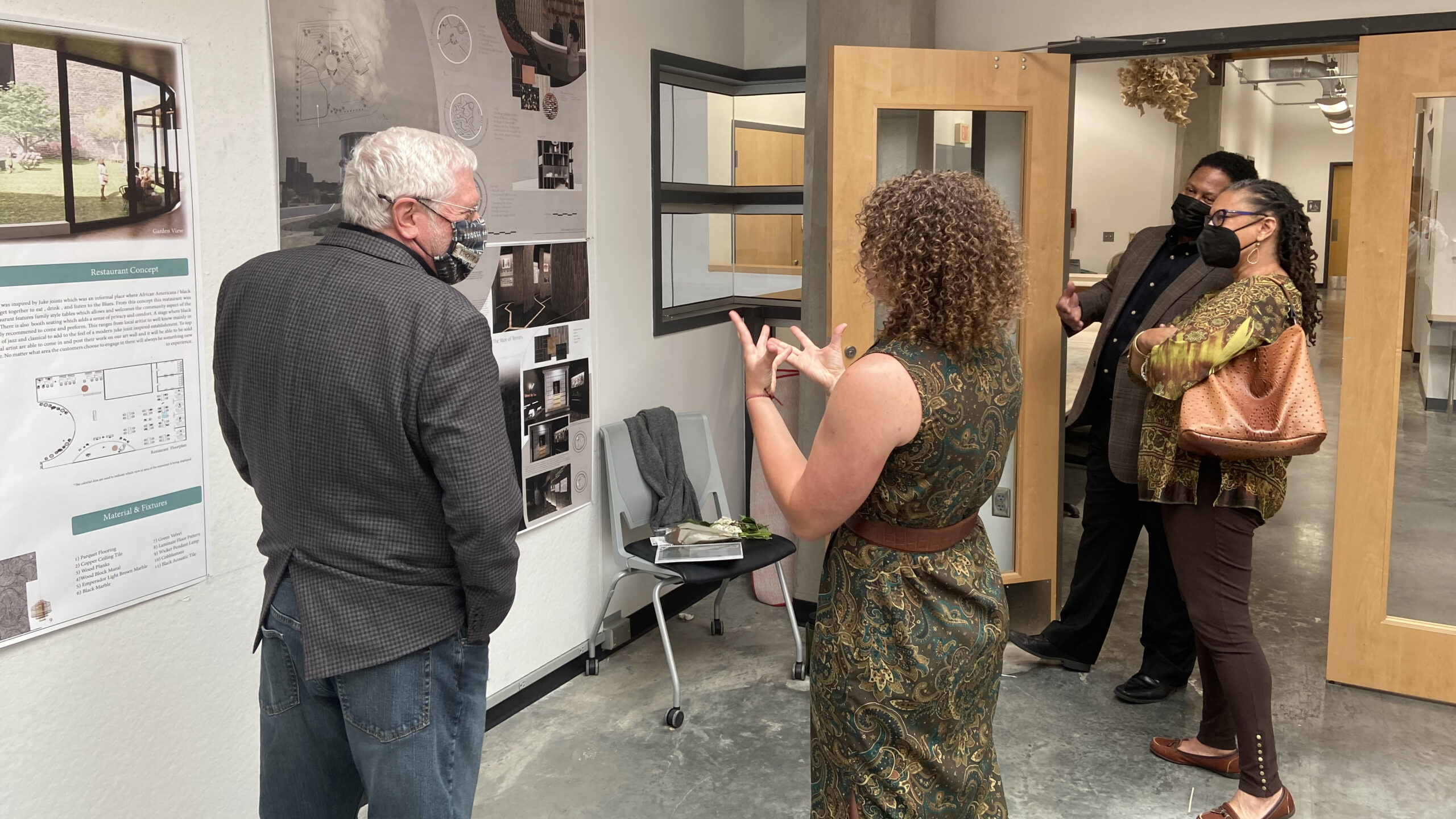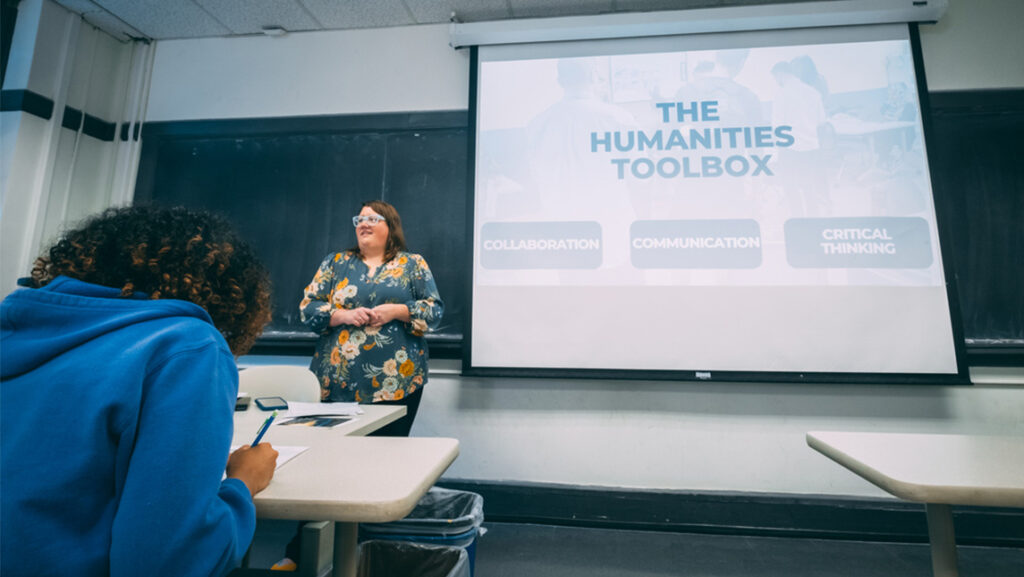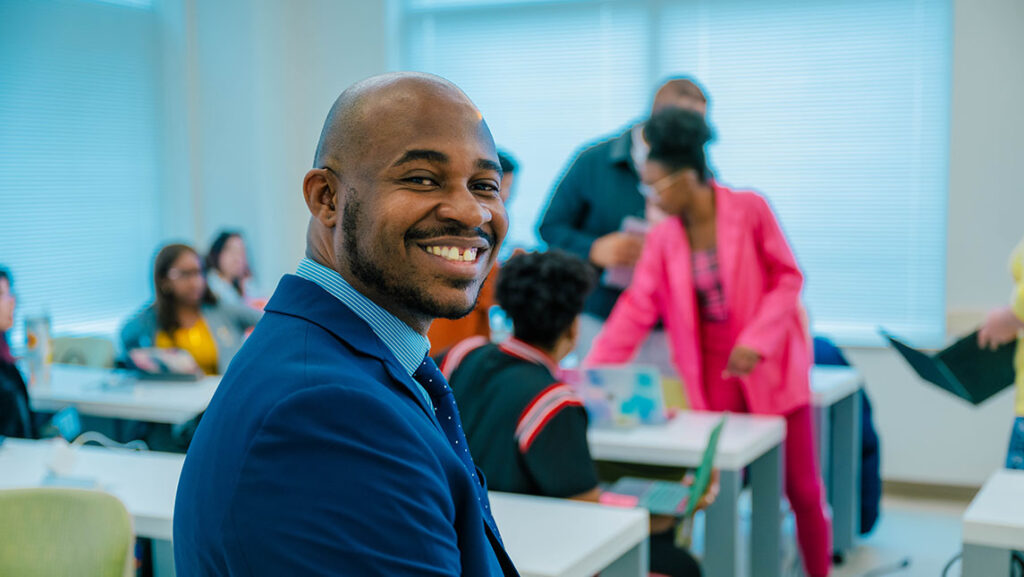A new research project at UNCG aims to leverage VR tech and design skills to raise social justice awareness. Funded internally, the effort brings members of UNCG’s interior architecture and computer science departments together with experts from the Greensboro community.
Dr. Asha Kutty in UNCG Interior Architecture, Dr. Regis Kopper in UNCG Computer Science, and Dr. Deborah Barnes, a senior research associate for the International Civil Rights Center & Museum and adjunct professor for UNCG’s African American and African Diaspora Studies, are some of the leaders of the project, which was recently awarded a grant from the UNCG Community-Engaged Pathways and Partnerships Program. The Guilford County Remembrance Project is also a partner.
The team will focus on the development of virtual reality walkthroughs that recreate select museum and memorial space designs previously created in a collaborative class led by Dr. Kutty and Dr. Noelle Morrissette in UNCG African American and African Diaspora Studies. The designs convey the context and honor the story of Eugene Hairston, a Guilford County lynch victim during the Segregation era.

The VR walkthroughs will be created and housed at the International Civil Rights Center & Museum in downtown Greensboro, NC, as part of an initiative by the Guilford County Remembrance Project GCRP, to engage in knowledge generation and healing around the topics of lynching in the United States.
Research conducted across several disciplines, the team leaders say, has demonstrated that immersive media can increase empathy, which is a prerequisite to social justice and healing. With this understanding, VR technology can be used as an effective tool not only to critique structural racism and document social injustices through the students’ designs, but to also foster the kinds of empathy, compassion, and solidarity necessary to facilitate positive social change.
The project is part of the Guilford County Remembrance Project’s efforts to encourage students to take an informed and active role in shaping their communities. Local high school students will be collaborating with UNCG student mentors from Dr. Kutty’s and Dr. Kopper’s departments for discussions and problem-solving.
It will also contribute to Guilford County’s ongoing efforts to reclaim a copy of its lynching marker from the National Memorial for Peace and Justice in Montgomery, AL. This memorial was created in dedication.



